Blogs
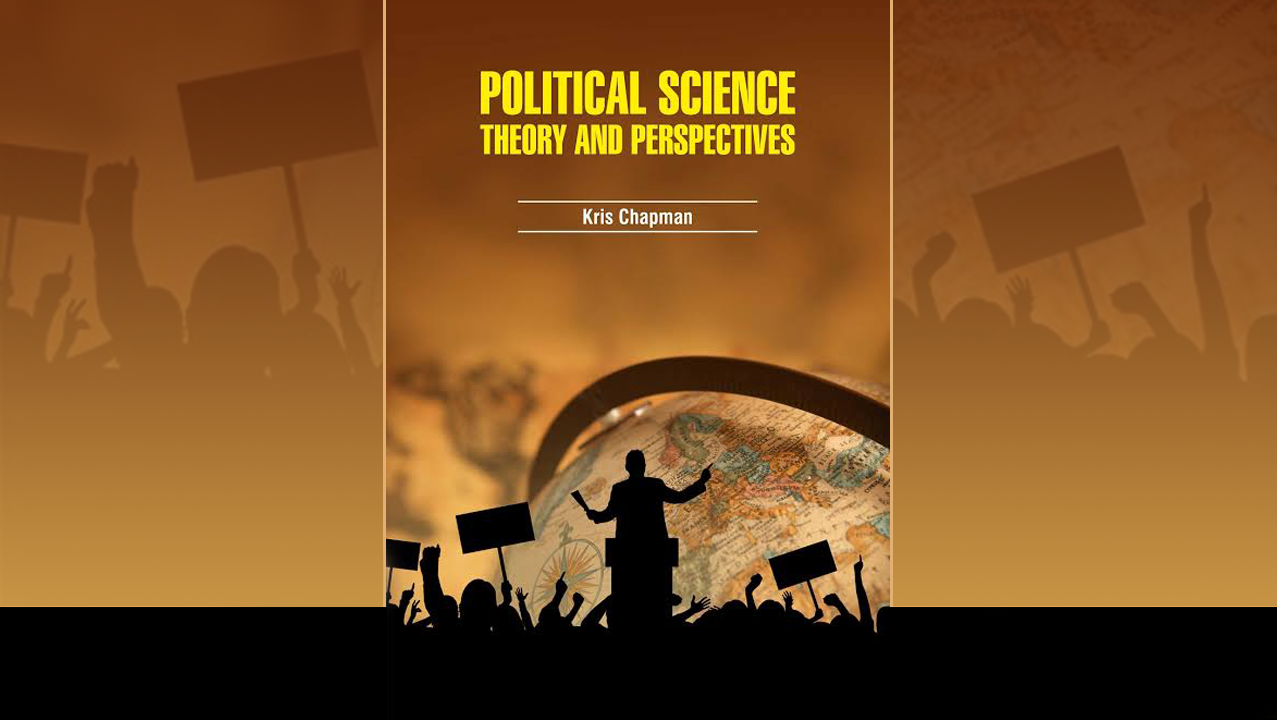
Political Science | Theory & Perspectives by Kris Chapman
Political science is the science and art of governance. Aim of this new venture on political science is to provide to our readers interesting, innovative and up to date material written by the national and international authorities on the subject, through the ages. As the title of the book suggests, this book is devised to reinterpret political science, its main elements, theories, practices, main fields and subfields, philosophy etc. By Kris Chapman, this book aims to reinterpret political science, its theories, practices, and philosophy. It was published in 2020 and is intended to be relevant to students, teachers, scholars, and general readers.This book is devised to reinterpret political science, its main elements, theories, practices, main fields and subfields, philosophy exhaustively etc. The book is of utmost importance to students, teachers, scholars and general readers. Selection has been made with a view to providing holistic picture on the various aspects of the subject.Book Review by: Maqsood Qadir SoomroMaster's in English, Master's in Sindhi, Post-Graduate Diploma in Industrial Laws, LLB and Twice Qualified in CCE-2013Author of the book "Sindhi Jo Adabi Khazano"#LearnWithSirMaqsood
Kitaboqalam
3 days ago
Future Shock by Alvin Toffler
Future Shock is a 1970 book by American futurist Alvin Toffler, written together with his wife Adelaide Farrell, in which the authors define the term "future shock" as a certain psychological state of individuals and entire societies, and a personal perception of "too much change in too short a period of time.Toffler proposed one criterion for distinguishing between industrial society and post-industrial society: the share of the population occupied in agriculture versus the share of city labor occupied in the services sector. In a post-industrial society, the share of the people occupied in agriculture does not exceed 15%, and the share of city laborers occupied in the services sector exceeds 50%. Thus, the share of the people occupied with brainwork greatly exceeds the share of the people occupied with physical work in post-industrial society. He distinguished three stages in the development of society and production: agrarian, industrial, and post-industrial and IT.Book Review by: Maqsood Qadir SoomroMaster's in English, Master's in Sindhi, Post-Graduate Diploma in Industrial Laws, LLB and Twice Qualified in CCE-2013Author of the book "Sindhi Jo Adabi Khazano"#LearnWithSirMaqsood
Kitaboqalam
1 week ago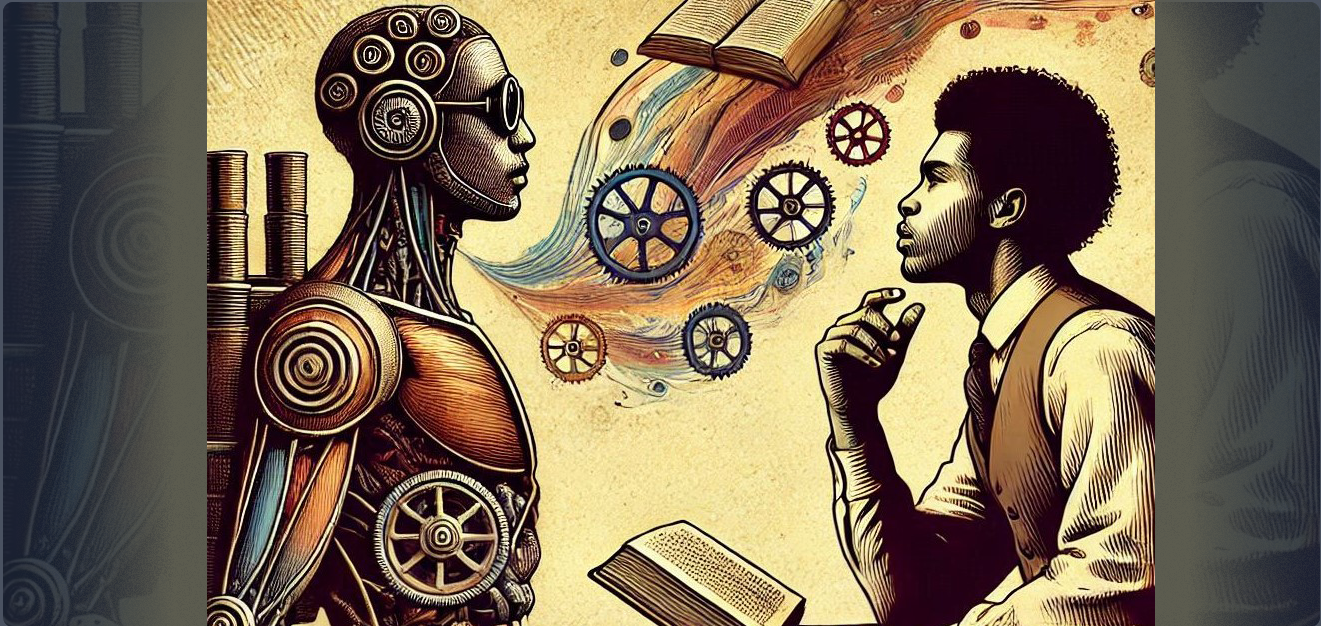
Books Are Silent Teachers
Books are windows to the world , bridging the realms of knowledge, wisdom, and experience. A famous Chinese saying states, "When a man reads 10 books, he travels 10,000 miles." Through reading books, we get insights into life’s complexities. Gurch Folk feels this sentiment, observing that "good books are not those that kill our hunger, but those that increase our hunger—the hunger to know life." It is this hunger that drives readers to expand their minds.Writers and thinkers across cultures have long revered reading as remedy to ill minds. For example, Franz Kafka once said, "A room without a book is like a body without a soul." Goethe, too, understood the arduous yet rewarding journey of learning, confessing, "Many people don’t know how hard and time-consuming it is to learn to study. I have put in my 80 years, but still, I can’t say that I am in the right direction." Similarly, Thomas von Kampen finds the spiritual depth of reading: "When I worship, I talk to God, but when I read a book, God talks to me." Through books, we engage in dialogues that transcend time, place, and even the divine.The German philosopher Gotthold Ephraim Lessing remarked that "the world alone cannot make someone a complete human being. If you want to become a complete human being, you have to read the works of good writers." Books, then, are companions on the path to self-fulfillment, offering new perspectives and depths of understanding. Novalis also saw the unique value of books, likening a library to "a place where we can talk freely with the gods of the past and present," where every volume is an invitation to converse with wisdom accumulated through the ages. German proverbs wisely compare books to cups "from which you have to learn to drink," suggesting that wisdom is something we must sip slowly, with patience, and intention.However, the reading culture in Pakistan is alarmingly low; a survey shows that a mere six paisas per capita is spent on books annually. In a society where luxury shoes are displayed prominently in shop windows while books lie ignored on dusty shelves, the appetite for learning is distressingly absent. A society that neglects books ultimately limits its capacity for consciousness, awareness, and growth. Reading is a wholesome activity that enriches the mind, enhances communication, and nurtures rational thought. It is no wonder that one who reads is often predicted to become a leader, as reading equips individuals with the insight and clarity needed to tackle life’s challenges. Books become faithful companions, offering solace and wisdom in solitude, guiding us to think critically and creatively.Books on various subjects—science, philosophy, history, literature, and religion—each add unique value to the reader's intellectual and emotional development. Scientific books reveal the mysteries of the universe, detailing the advancements that shape our world and offer a window into innovations that drive human progress. Philosophical works, in contrast, are playgrounds for the imagination, where readers explore existential questions and challenge established norms. Those interested in philosophy find that these texts foster profound self-reflection and spark debates on the very nature of existence. While philosophy often encounters resistance due to its challenge to convention, as seen in the lives of Socrates, Plato, and Aristotle, history has ultimately vindicated many philosophers’ once-controversial ideas.History books are valuable for understanding human civilization's trajectory. They remind us that, as the adage goes, "history is the best teacher." Historical accounts are treasures that preserve the experiences, deeds, and lessons of those who came before us. For Pakistan, history offers insights into the sacrifices and perseverance that led to independence, encouraging future generations to learn from these lessons. History writers diligently document these narratives, shaping the collective memory and wisdom of a nation for posterity.In literature, readers find a mirror to the human soul. Poetry, novels, and prose allow readers to explore the realms of fantasy, romance, and creative imagination. This form of storytelling serves not only as entertainment but also as a bridge to empathy and emotional awareness, qualities that enrich life. Similarly, religious books occupy a special place in human learning. These texts are the blueprints of character, shaping both mind and spirit. Among all religious texts, the Holy Quran stands as a comprehensive guide, offering insights that are relevant to every stage of life. It calls upon readers to engage deeply, making it an indispensable source of guidance for millions worldwide.Reading good books feeds the mind and soul, nurturing a curiosity that never wanes. As Aulus Gallius puts it, "Books are silent teachers," and through them, we find not just knowledge but the wisdom to live better lives. A strong reading culture is the bedrock of any informed society, and investing in it means investing in a brighter, more enlightened future.Saira SamoThe writer is an educationist.
Kitaboqalam
1 week ago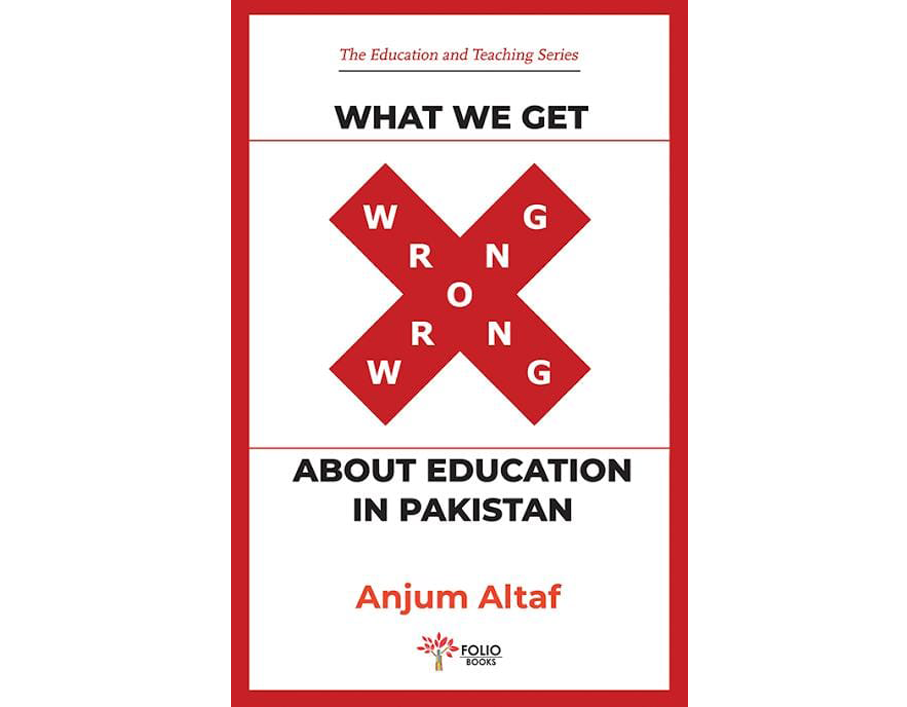
What We Get Wrong About Education in Pakistan by Anjum Altaf
What We Get Wrong about Education in Pakistan, adds a number of excellent arguments to the current debate on education in Pakistan, and, taking the conversation to a higher theoretical level, examines some fundamental problems besetting public education in the country. The answer it gets is disturbing. It proposes that poor education standards are a matter of government choice. Our society is hierarchal in structure and the assumption that the government cares and works for the welfare of the entire nation is a myth. This is all the more true if the government consists of robber barons concerned more with their self-interests. In short, what that book offer to readers are: a correct perspective on school education that should be helpful to all — parents, teachers and education planners; a manual to parents about which of their pre-conceived notions they must resist; and scathing but logical criticism of the Single National Curriculum. Book Review by: Maqsood Qadir Soomro Master's in English, Master's in Sindhi, Post-Graduate Diploma in Industrial Laws, LLB and Twice Qualified in CCE-2013 Author of the book "Sindhi Jo Adabi Khazano" #LearnWithSirMaqsood
Kitaboqalam
1 week ago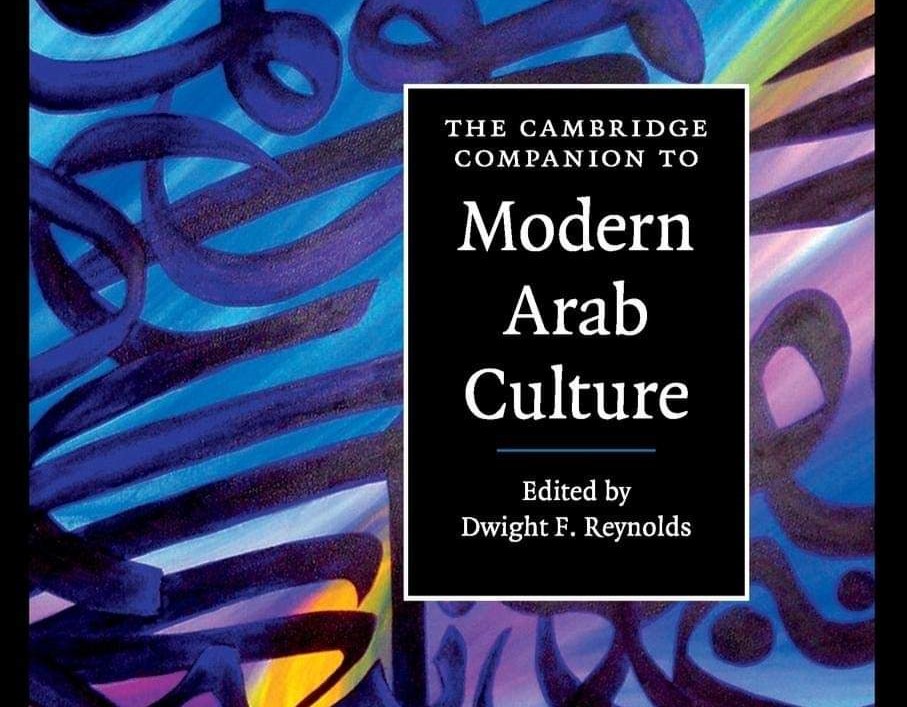
Modern Arab Culture by Dwight F. Reynolds
Dwight F. Reynolds brings together a collection of essays by leading international scholars to provide a comprehensive and accessible survey of modern Arab culture, from the early nineteenth to the twenty-first century. The chapters survey key issues necessary to any understanding of the modern Arab World: the role of the various forms of the Arabic language in modern culture and identity; the remarkable intellectual transformation undergone during the 'Nahda' or 'Arab Renaissance' of the late nineteenth and early twentieth century, the significant role played by ethnic and religious minorities, and the role of law and constitutions. Other chapters on poetry, narrative, theatre, cinema and television, art, architecture, humour, folklore, and food offer fresh perspectives and correct negative stereotypes that emerge from viewing Arab culture primarily through the lens of politics, terrorism, religion, and economics. Book Review by: Maqsood Qadir Soomro Master's in English, Master's in Sindhi, Post-Graduate Diploma in Industrial Laws, LLB and Twice Qualified in CCE-2013 Author of the book "Sindhi Jo Adabi Khazano"
Kitaboqalam
1 week ago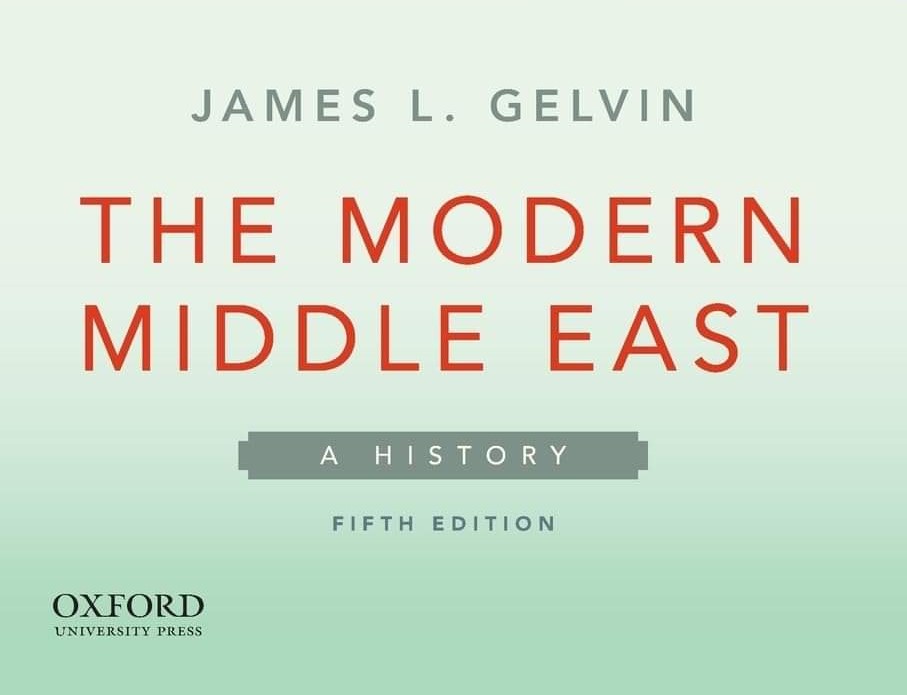
The Modern Middle East by James L. Gelvin
This book explores how the forces associated with global modernity have shaped the social, economic, cultural, and political life in the region over the course of the past 500 years. This book examines the impact of imperial and imperialist legacies, the great nineteenth-century transformation, cultural continuities and upheavals, international diplomacy, economic booms and busts, the emergence of authoritarian regimes, and the current challenges to those regimes on everyday life in an area of vital concern to us all. This book examines how the forces associated with global "modernity" have shaped social, economic, cultural, and political life in the region. This book covers all aspects but a very short introduction to "How Middle East" plunged into crisis". And the Middle East as a "pitch for war" for proxies and anti-rival states. Book Review by: Maqsood Qadir Soomro Master's in English, Master's in Sindhi, Post-Graduate Diploma in Industrial Laws, LLB and Twice Qualified in CCE-2013 Author of the book "Sindhi Jo Adabi Khazano"
Kitaboqalam
2 weeks ago
Surviving Agriculture of Pakistan
Pakistan, an agrarian country, has long been dependent on agriculture for its economic growth and food security. Over 60% of the population is involved in agriculture, with crops like wheat, rice, cotton, and sugarcane being the primary products. However, the sector has been facing challenges in recent years, with one of the most significant threats being climate change. The country has experienced extreme weather events, including unpredictable rainfall patterns, floods, and heatwaves. These changes in the climate have led to reduced water availability, a crucial factor for crop cultivation in Pakistan, which relies heavily on irrigation from the Indus River system. Over the past few decades, Pakistan has seen a consistent decrease in the availability of water for agriculture due to the melting of glaciers in the northern mountains, a decrease in snowfall, and the overuse of water resources. As a result, farmers have struggled to maintain the same level of crop yields. The lack of consistent water supply during crucial growing seasons, combined with the increasing frequency of droughts and floods, has led to a decline in the cultivation of major crops. Wheat production, for instance, has decreased significantly, as fluctuating temperatures and irregular rainfall disrupt the planting and harvesting cycles. Rice and cotton, which are highly water-intensive crops, have also suffered as water scarcity has worsened. Furthermore, pests and diseases, which are often exacerbated by rising temperatures, have become more prevalent, damaging crops and reducing yields. Another impact of climate change is the increasing intensity of heatwaves. Pakistan has seen some of the highest temperatures on record in recent years, with extreme heat stressing both crops and livestock. Prolonged exposure to these high temperatures reduces crop productivity and increases evaporation rates, further depleting the water supply needed for irrigation. This heat also puts the health and productivity of the agricultural labor force at risk. The government of Pakistan, along with international organizations, has initiated various programs to address the impact of climate change on agriculture, such as promoting drought-resistant crop varieties, improving water management systems, and encouraging climate-resilient farming practices. However, the full extent of the damage caused by climate change requires more urgent action, including long-term policies focused on sustainable agriculture and climate adaptation strategies. Despite these efforts, climate change continues to present a significant challenge to Pakistan’s agricultural sector, with far-reaching implications for food security and the economy. What long-term strategies are suggested to combat the impacts of climate change on agriculture? The writer is Taimoor Altaf, Twice Qualified CCE-2013
Kitaboqalam
2 weeks ago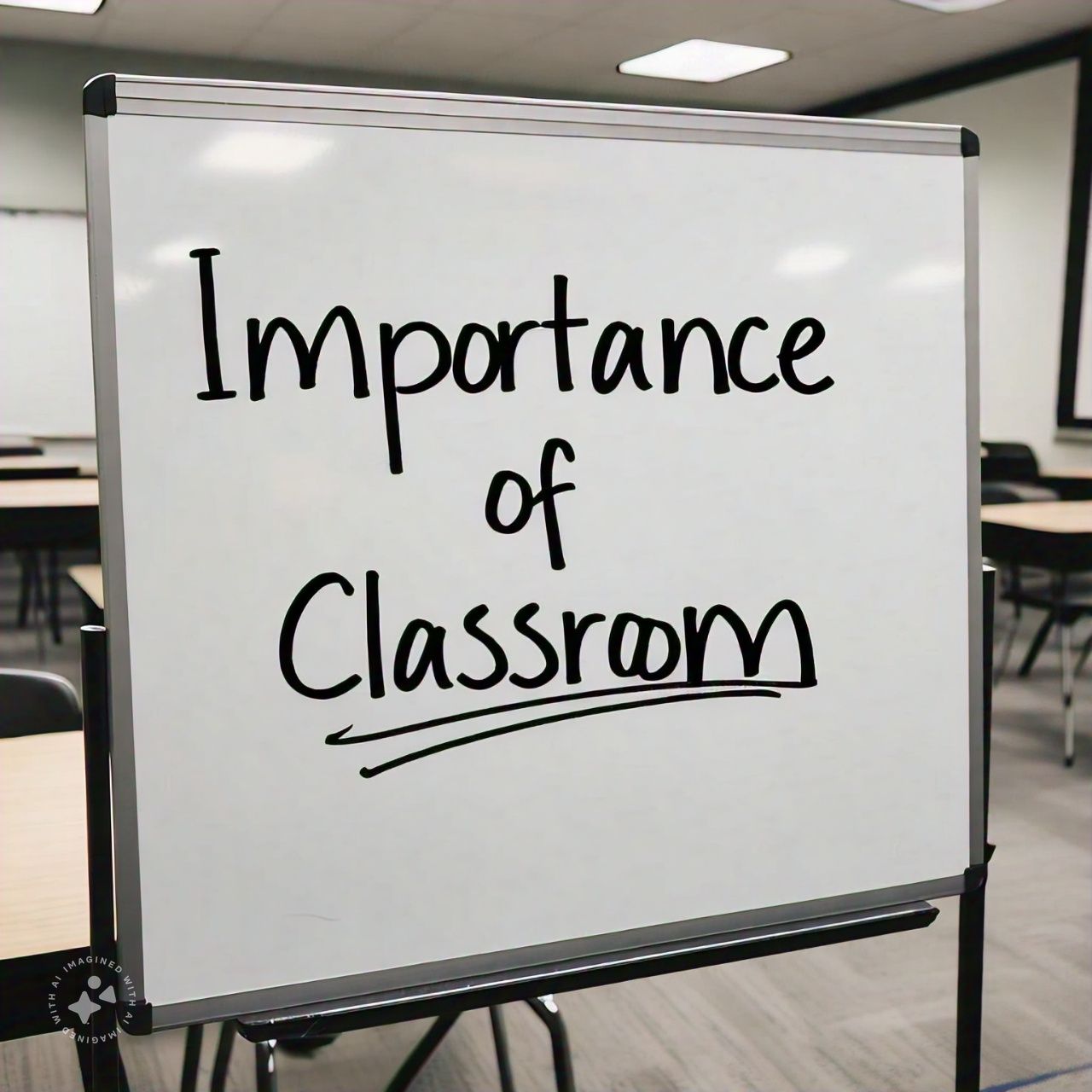
Importance of Classroom !
The child learning in the classroom is a subject of great importance. While some argue that traditional classroom settings are outdated and ineffective, others firmly believe that they remain primary for a child's intellectual, social, and emotional development. Let's examine how. One of the primary advantages of child learning in the classroom is the opportunity for face-to-face interaction with peers and teachers. Human beings are social creatures, and the classroom setting provides a unique platform for children to develop social skills. Through group discussions, teamwork, and classroom activities, children learn how to communicate effectively, respect diverse perspectives, and act as a team with others. These interpersonal skills are not only fundamental for academic success but also for steering life beyond the school environment. The classroom offers a structured learning environment where children can focus on their studies without the distractions often present at home or in unstructured settings. With clear routines, set schedules, and academic goals, children can develop self-discipline and time management skills. The presence of a knowledgeable teacher also allows for immediate clarification of doubts and guidance through difficult concepts, developing a deeper understanding. In this setting, students are held accountable for their academic progress. Regular assessments, quizzes, and examinations serve as measures of a child's knowledge and skills. This accountability helps motivate students to stay on track, put in effort, and take their studies seriously. Receiving feedback from teachers allows students to identify areas for improvement and work towards enhancing their learning outcomes. These classes are often melting pots of diversity, bringing together children from various cultural, ethnic, and socio-economic backgrounds. This diversity enriches the learning experience by exposing children to different perspectives and ideas. Through interactions with peers from varied backgrounds, children develop a broader worldview, empathy, and a deeper appreciation for cultural differences. These experiences lay the foundation for a more tolerant and inclusive society. Learning encourages the development of critical thinking skills. Engaging in discussions, debates, and problem-solving activities enables children to analyze information, draw conclusions, and form their own opinions. This ability to think critically is essential in a world where information is readily available, and individuals must assess its credibility and relevance. The classroom setting offers opportunities for emotional and behavioral development. Children learn to manage their emotions, cope with challenges, and develop resilience when faced with academic or social difficulties. They also learn appropriate behavior, conflict resolution, and the importance of teamwork - all of which are vital life skills. Teachers play a pivotal role in creating a supportive learning environment in the classroom. They provide encouragement, guidance, and individualized attention to students, providing a positive relationship that motivates children to explore their potential. An oriented classroom environment instills confidence in children and helps them overcome obstacles in their academic journey. The presence of peers in the classroom allows for peer learning. Children often learn from each other, and group activities enable them to share ideas and knowledge. Working together on projects or assignments cultivates a sense of camaraderie and collective achievement, preparing them for future teamwork in professional settings. While some argue that technology can replace the traditional classroom, hands-on experiences remain invaluable for effective learning. Science experiments, art projects, and field trips offer tangible learning opportunities that engage all the senses and enhance retention. Such experiences also spark curiosity and creativity, which are needed for a child's development. Classroom learning lays the foundation for further education and lifelong learning. Basic literacy and numeracy skills are developed in the early years, setting the stage for more advanced learning in higher grades and beyond. Without a strong educational foundation, children may face challenges in their academic pursuits and future careers. Child learning in the classroom is a time-honored tradition that continues to shape the minds and characters of young individuals. We must not overlook the lasting value of the traditional classroom in preparing the next generation of learners and leaders. Written by: Saira Samo The writer is an educationist & column contributor.